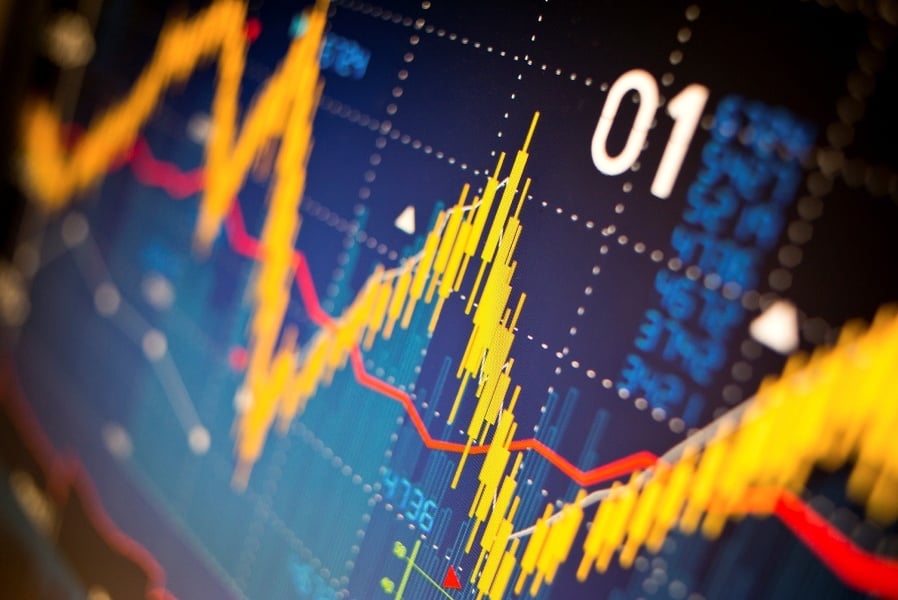

The stock market’s jarring mid-week slide, against the backdrop of temporary gasoline shortages and growing unrest in Israel, developed into a reminder of the kind of risk of inflation building up across the financial markets.
“Inflation concerns are rightly increasing as recent data suggest that the supply side of the economy, including the labor market, is having trouble keeping up with surging demand,” said Mohamed El-Erian, chief economic adviser at Allianz. “With that comes concern that the Fed may be late in responding, adding to the potential fragility of the liquidity paradigm that has delivered the everything rally.”
The S&P 500 Index, which is still up 9.5% from the start of the year, fell by nearly 4% between Monday and Wednesday before rebounding by more than 2% through mid-day trading Friday.
Jurrien Timmer, director of global macro at Fidelity Investments, downplayed the stock market volatility as “investors shooting first and asking questions later,” but admitted the inflation riddle remains.
“Inflation is the question we’re all asking right now,” he said. “We do know that inflation is spiking, and we saw that coming with low inventories and supply-chain disruptions.”
Timmer added that even though the Federal Reserve is saying the inflation numbers are “transitory” while supplies catch up to demand, “it doesn’t mean inflation goes away.”
“We’re seeing anecdotal data of companies having trouble hiring are increasing wages, and that’s how inflation gets more sticky,” he said, drawing parallels to the inflation of the late 1970s. “Unions were a bigger deal back then and so as those price increases went through the system, the increase in prices were reflected in collective bargaining of labor unions and it got fed into wages and once inflation is in wages it gets stickier,” he added.
Paul Schatz, president of Heritage Capital, took a different tack by saying the stock market pullback was the result of it being “tired.”
“The market couldn’t rally on super strong earning and needed an excuse to sell off,” he said. “This is a normal, healthy and expected pullback, and the baby is not being thrown out with the bathwater. Energy, banks and commodities are behaving well, and credit markets are not seeing widening spreads.”
In stride with stock prices dipping during the week, the yield on the closely-watched 10-year Treasury spiked to nearly 1.7%, from 1.57% on Monday.
Jeremy Finger, founder of Riverbend Wealth Management, said he plans to navigate any inflation threats with traditionally balanced portfolios.
“We’re handling it fine,” he said. “When investments are balanced some areas do well with inflation, typically, cyclical companies.”
Marianela Collado, chief executive and senior financial adviser at Tobias Financial Advisors, said a long-term focus is helping her clients avoid “shooting themselves in the foot” by “reacting emotionally to short-term market movements.”
“Market volatility is an opportunity to rebalance portfolios and do what portfolios need to enhance rate of return,” she said. “On the inflation point, it was expected that we would have a surge from all the pent-up demand from a year's worth of lockdown. In fact, in our projections, we cautiously plan for 3% inflation even though it has been under 2%.”
Christopher Lyman, a financial planner at Allied Financial Advisors, said his clients have not been alarmed by the recent market volatility, but that inflation is a risk he is watching.
“Taxes and inflation are two of the biggest risks to your money that you cannot directly control how it affects your money, however, you can do things to mitigate these risks,” he added. “The old rule of thumb was if you had about $1 million at retirement you could live fairly comfortably. This means you now need $1.558 million to live the same as a $1 million retirement nest egg used to provide.”

Relationships are key to our business but advisors are often slow to engage in specific activities designed to foster them.

Whichever path you go down, act now while you're still in control.

Pro-bitcoin professionals, however, say the cryptocurrency has ushered in change.

“LPL has evolved significantly over the last decade and still wants to scale up,” says one industry executive.

Survey findings from the Nationwide Retirement Institute offers pearls of planning wisdom from 60- to 65-year-olds, as well as insights into concerns.
Streamline your outreach with Aidentified's AI-driven solutions
This season’s market volatility: Positioning for rate relief, income growth and the AI rebound
